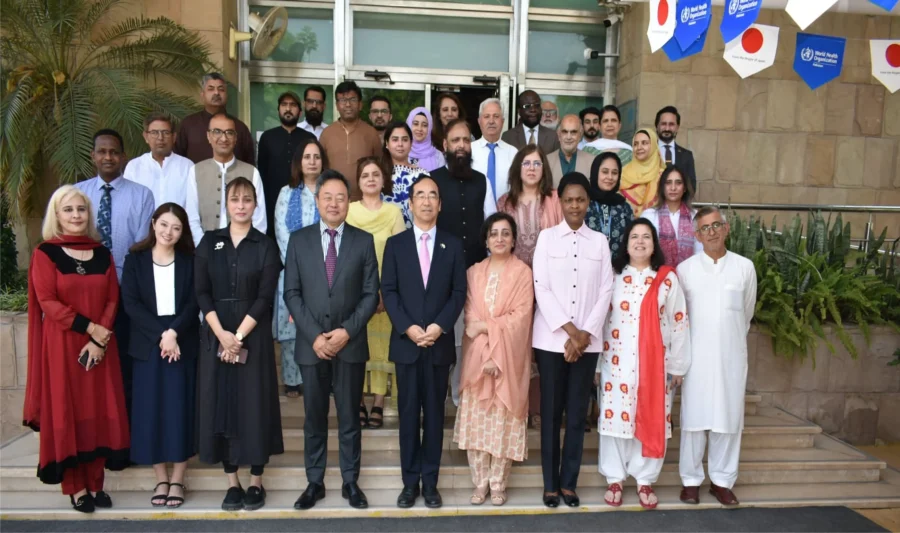Zubair Qureshi
The World Health Organization (WHO) concluded on Friday a successful partnership with the Embassy of Japan and celebrated the completion of a project “Rebuilding Together” an initiative that revitalized healthcare infrastructure in flood-stricken areas.
Japan’s Ambassador Mr Wada Mitsuhiro and other dignitaries attended the event. The devastating monsoon rains that struck Pakistan between mid-July and mid-August 2022 resulted in unprecedented flooding, impacting millions of lives across Balochistan, Khyber Pakhtunkhwa, Punjab, and Sindh provinces. Over 600,000 people were displaced, 1.9 million houses damaged, and extensive agricultural losses incurred.
The healthcare infrastructure was severely affected, with over 2,000 health facilities damaged. The financial assistance from the government and the people of Japan enabled WHO to timely respond to communicable disease outbreaks and enhance access to essential healthcare through revitalization of damaged healthcare facilities. In a collaborative effort to strengthen healthcare delivery in Pakistan, the WHO has renovated 462 healthcare facilities providing them with essential equipment and supplies of which 240 have been rehabilitated through Japan’s assistance.
These facilities are now managed by the government health authorities, ensuring continued service provision. To empower local healthcare professionals for long-term sustainability, WHO has also invested in capacity building of service providers in various aspects of healthcare delivery including disease surveillance and outbreak response.
WHO Representative and Head of Mission in Pakistan, Dr Luo Dapeng, in his welcome remarks acknowledged the remarkable support by the government and people of Japan stating “We are extremely grateful for the invaluable support from the Government and people of Japan.
Their generous contribution has been instrumental in restoring access to essential healthcare for vulnerable communities affected by the floods. This collaborative effort exemplifies the importance of international partnerships in building resilient healthcare systems.” Ambassador Wada Mitsuhiro appreciated the WHO Pakistan’s work and support to the government of Pakistan, noting that “The government of Japan is committed to “Leave No One’s Health Behind” towards achieving the Universal health Coverage. Global Health is central to Japan’s Development Cooperation, and we consider it to be the fundamental pillar of sustainable development.”









